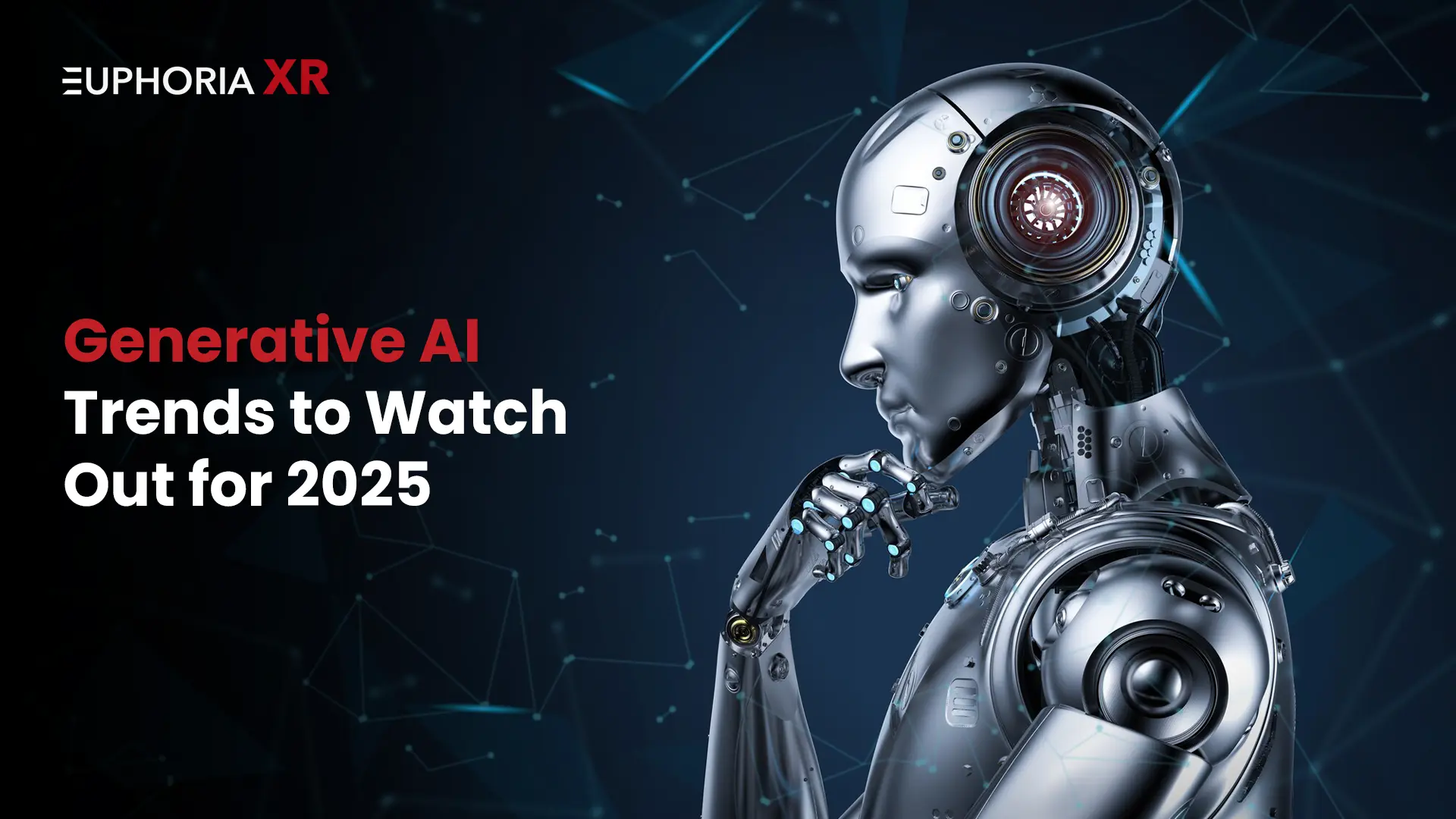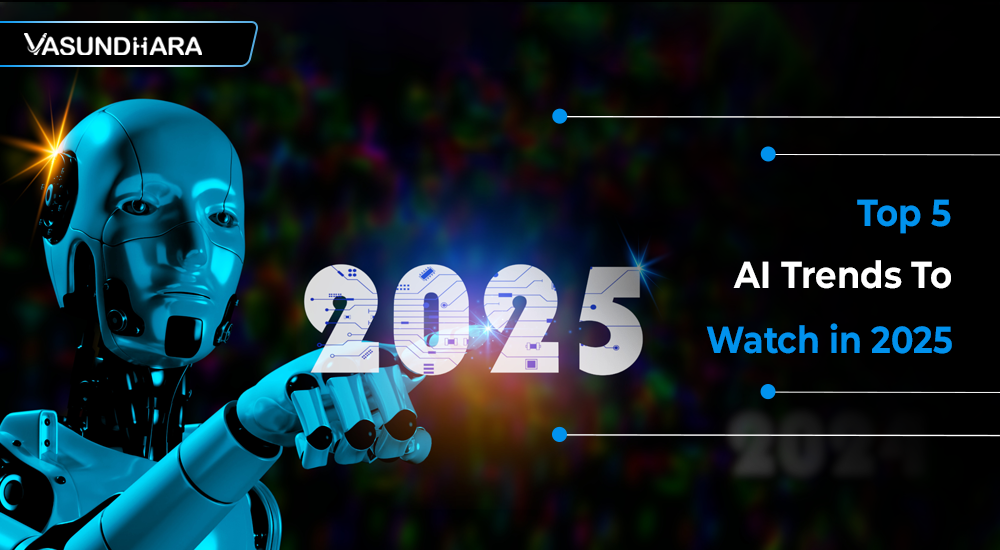🤖 Top AI Trends to Watch in 2025
Artificial Intelligence (AI) isn’t just a buzzword anymore—it’s becoming a daily part of our lives, from voice assistants to powerful business tools. As we move through 2025, AI is evolving faster than ever, opening up new opportunities and raising critical questions. Whether you’re a tech enthusiast, entrepreneur, student, or casual user, these are the top AI trends to watch in 2025.

1. Generative AI Gets Smarter—and More Useful
If 2023–2024 was the rise of generative AI (like ChatGPT, DALL·E, and Midjourney), then 2025 is the year it goes mainstream in practical ways. Expect more refined outputs, faster responses, and tools that integrate deeply into productivity apps. We’re talking AI that not only writes blogs and creates images—but designs presentations, codes full apps, and even manages basic customer service tasks on its own.
Platforms like OpenAI’s ChatGPT, Google Gemini, and Anthropic’s Claude are rapidly evolving, with better memory, personalization, and integration with your digital life. The line between human-created and AI-created content is blurring fast.
2. AI Companions & Digital Assistants Are Becoming Human-Like
Get ready for AI companions that remember you, your preferences, your routines, and even your emotions. Tools like Character.AI, Pi.ai, and Replika are pushing toward emotionally intelligent, conversational agents.
In 2025, we’ll see AI assistants that can:
-
Handle personal scheduling across apps
-
Read and summarize your emails
-
Help with mental wellness and motivation
-
Offer daily coaching or advice, tailored to your goals
We’re entering a world where AI becomes a real-time thinking partner, not just a task robot.
3. AI in Video, Music, and Film Creation
AI isn’t just about writing anymore—it’s becoming a creative powerhouse in multimedia. New tools can generate realistic AI videos, compose original music, and even animate characters from text prompts.
-
Sora by OpenAI can generate short video clips from just a sentence.
-
Suno and Udio create songs with lyrics, melody, and instruments in seconds.
-
Game developers are using AI for background art, dialogue, and ambient music.
This is revolutionizing industries like entertainment, marketing, education, and content creation. In 2025, expect AI tools that make entire YouTube videos or animated shorts with minimal human input.

4. AI-Powered Search Engines Are Changing the Internet
The way we search online is shifting. Traditional search engines like Google are evolving into AI-first platforms. Google’s SGE (Search Generative Experience) and Microsoft’s Bing AI are rethinking how we interact with information—more conversational, less clicking through websites.
What this means for bloggers and businesses:
-
You’ll need to optimize for AI-driven search snippets, not just traditional SEO.
-
Structured, helpful content with clear answers will win.
-
Being cited by AI models could become the new form of “ranking.”
If you run a website (like HavenMindz!), it’s time to adapt content for AI readers as well as human ones.
5. AI Regulation & Ethics Take Center Stage
As AI grows, so do concerns. In 2025, global conversations around AI regulation, bias, data privacy, and deepfakes are intensifying. Governments and tech companies are creating ethical frameworks to guide responsible development.
Key trends include:
-
AI watermarking and content verification
-
Stricter rules on how AI can use user data
-
Transparency in model training and usage
If you’re in tech, marketing, or content creation, understanding AI ethics isn’t optional anymore—it’s essential.
6. AI and the Job Market: Redefining Work, Not Replacing It
Yes, AI is automating tasks—but it’s also creating entirely new categories of work. In 2025, “AI-enhanced jobs” are becoming the norm.
Examples:
-
Content writers using AI for first drafts
-
Developers using AI to debug code faster
-
Teachers using AI to personalize learning
-
Marketers using AI to predict campaign success
The key shift? Knowing how to use AI tools is now a core skill. Companies are hiring people who know how to prompt, train, and collaborate with AI systems. It’s less about replacement, more about augmentation.
7. AI in Daily Life: From Smart Homes to Smart Everything
AI is moving beyond the screen and into your surroundings. In 2025, expect smarter home devices, wearables, and even vehicles that anticipate your needs.
-
Smart fridges that suggest meals based on what’s inside
-
AI-powered thermostats that adjust based on your habits
-
Voice interfaces that understand context and emotion
These improvements make life smoother, but also raise new questions about privacy and over-dependence. Still, AI is becoming as common as electricity—quiet, powerful, and everywhere.

🌟 Final Thoughts: Embrace the Shift
AI in 2025 is more than just a trend—it’s a transformation. It’s reshaping how we think, work, create, and connect. Whether you’re a tech-savvy pro or just starting out, this is the year to embrace AI as a tool, not a threat.
Keep learning. Stay curious. And most importantly, experiment. The future is being built prompt by prompt—and you’re invited to help shape it.


